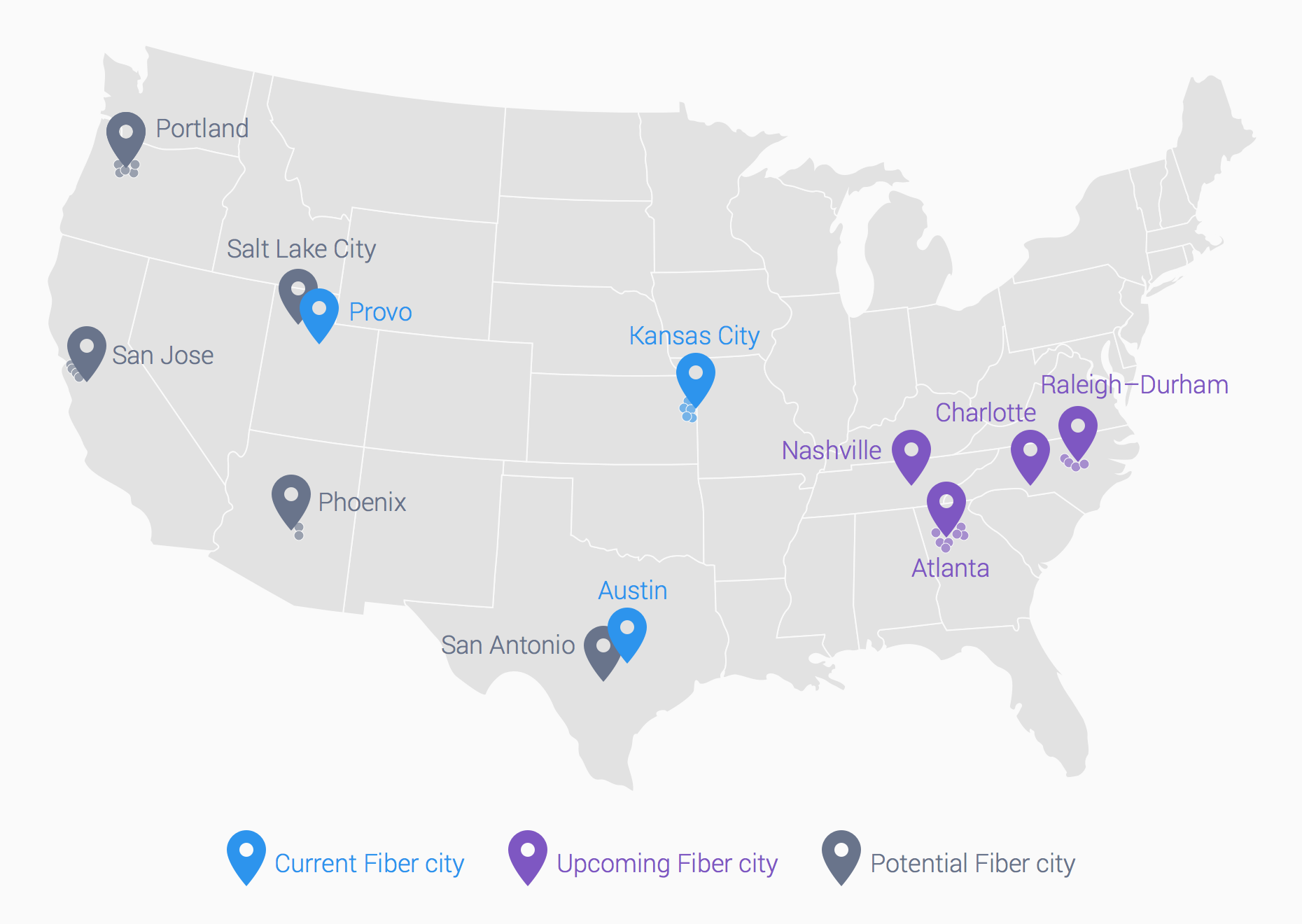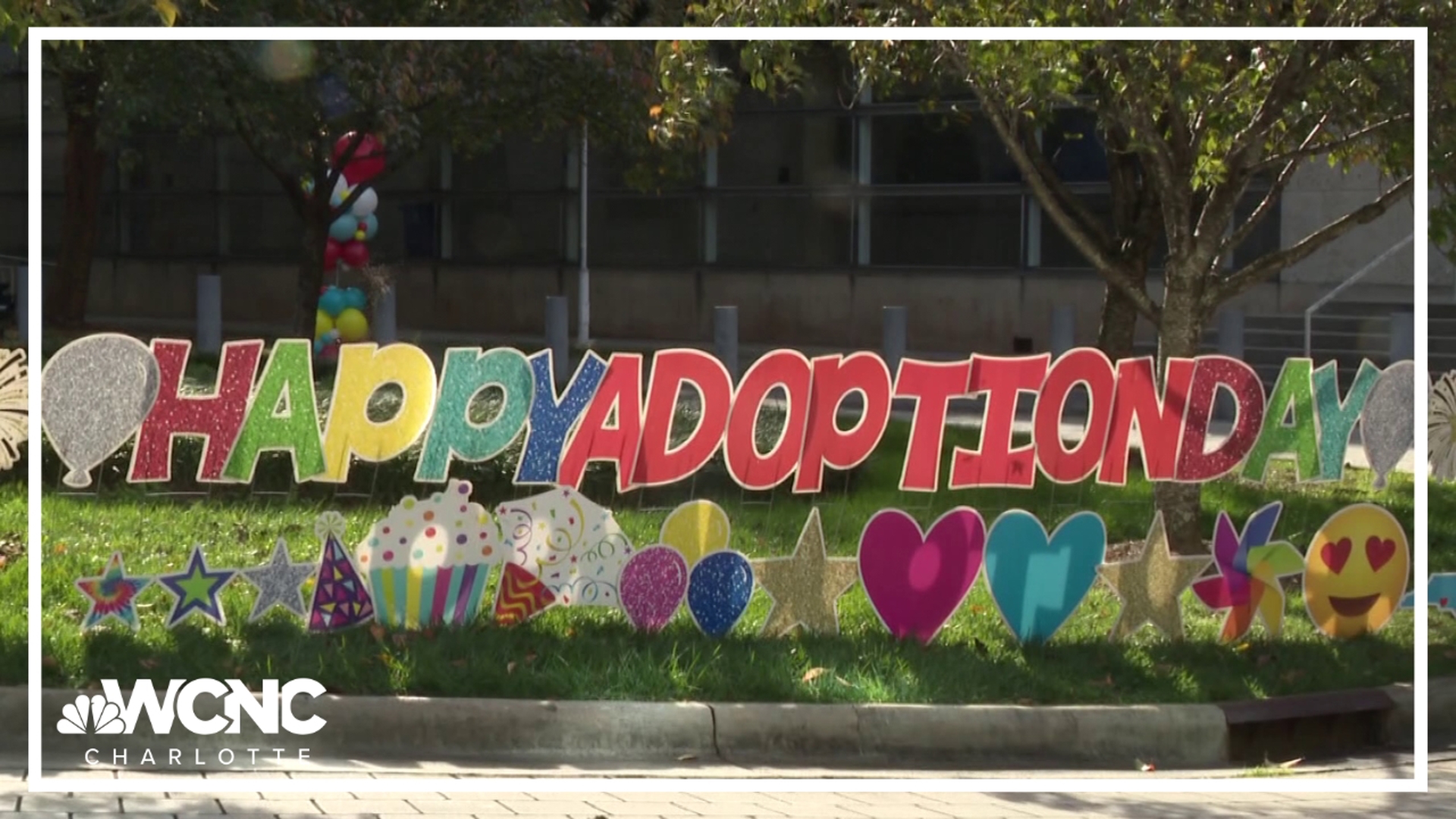CHARLOTTE, N.C. -- Google Fiber is coming to the Queen City, according to an announcement made by Charlotte Mayor Dan Clodfelter on Tuesday afternoon.
Charlotte, along with Atlanta, Raleigh-Durham and Nashville are the four cities that will launch Google Fiber.
"The wait is over," Clodfelter said. "We can confirm Google fiber is coming to Charlotte."
Fiber-optic broadband networks send information using pulses of light, while traditional networks use electric signals sent over copper wire. Fiber networks are much faster as a result, with speeds that are hard to match and capacity that's hard to bog down.
"This is a major win for our city," Clodfelter said. "This is validation that Charlotte will be a major player in digital innovation."
Google Fiber promises upload and download speeds of one gigabit per second, which can be 10 to a hundred times faster than speeds offered by traditional non-fiber carriers like Time Warner Cable and AT&T.
While Google didn't officially comment on the coverage map or pricing, there are projected coverage maps floating around the internet that show coverage in Gastonia, Huntersville, Cornelius, Kannapolis, Matthews, Monroe and Rock Hill.
As for pricing, one gigabit internet + 150 HD TV runs from $120 to $130 in the existing Google Fiber markets, while standalone gigabit internet is priced at $70 a month in each. Meanwhile, basic Google Fiber, with a five mbps download and a one mbps upload is free to customers in "fiberhoods", but they must pay a $300 construction fee up front, or space that out at $25 a month over a year period.
Having fast broadband speeds "is just a necessity, not a luxury anymore," Kevin Lo, general manager of Google Fiber, said in an interview. "The next chapter of the Internet will be written at gigabit speeds."
The move comes nearly five years after Google offered to build a state-of-the-art fiber-optic Internet service in one U.S. metro area as an experiment.
It launched in 2012 in the Kansas City area, charging $80 a month for the gigabit service and $120 a month for Internet plus cable TV. A slower version of the service is free but requires a one-time fee.
Google Fiber is now up and running in Provo, Utah; and Austin and is exploring the possibility of expanding into Phoenix, Portland, Ore., Salt Lake City, San Antonio and San Jose. Google announced nearly a year ago that it was considering building Fiber in the nine new metro areas.
Lo would not say when Google would announce additional cities. "We are really focused on doing a great job in these cities," he said.
Brokerage firm Sanford C. Bernstein analyst Carlos Kirjner said in November that he expects Google to announce it will extend Fiber to "all or nearly all" of the 34 cities with which it's in discussions. Kirjner estimates the cost for those cities alone could reach $3 billion.
"We believe the expansion is a consequence of Google Fiber's success in Kansas City and Provo, and in the early days in Austin, and reflects Google's view that it may be able to scale Fiber to build a profitable business," Kirjner wrote in a research report Tuesday.
Many consumers and businesses are eager for faster Internet speeds. The average connection speed is about 10 megabits per second, ranking the U.S. 14th in the world.
But investors are becoming increasingly concerned about Google's growing capital expenditures. Wall Street views Google Fiber as an enormously expensive experiment aimed at getting broadband providers to goose their speeds and lower prices.
"We think building an at scale, profitable broadband business is very hard, but Google's phase approach minimizes risk. We think the expansion is a positive for Google, but believe the Street will disagree," Kirjner said.
Lo says Google Fiber is a real business for the Internet giant.
The spread of faster Internet helps Google by making it easier for consumers to use its services and view its ads, whether they are searching the Web or watching YouTube videos.
"These are long-term businesses for Google and for Google Fiber," Lo said.
Google Fiber has been working with city leaders to get their communities ready. Now begins the hard work, Lo said, creating a map of where to put thousands of miles of fiber and then beginning construction.
It takes about a year for Google to build out a fiber optic network that reaches homes and businesses.
UBS analyst Eric Sheridan called the latest expansion "a continuation of a measured approach."
"We believe Google Fiber serves dual aims: a) to push current infrastructure providers to upgrade their networks; and b) to raise consumer standards for Internet speeds broadly," Sheridan wrote in a research report Tuesday.
One criticism of Google Fiber: It may be widening, not closing, the digital divide.
Google says it reaches out to lower-income communities to encourage residents to sign up for Google Fiber, sending employees door to door and creating partnerships with community groups.
But a survey of six low-income Kansas City, Mo., neighborhoods conducted for The Wall Street Journal found just 10% of residents subscribe to Google's Fiber service. Another 5% use a slower version that is free for seven years after a $300 installation fee.
Another survey conducted by Sanford C. Bernstein found that 42% of the residents surveyed in five more affluent nearby neighborhoods signed up for Google Fiber and another 11% signed up for the slower version.


